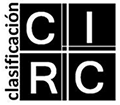WRITERS IN “EL MINISTERIO DEL TIEMPO”: A COMPARATIVE STUDY BETWEEN FICTION AND REALITY
DOI:
https://doi.org/10.18002/lys.i17.7415Keywords:
Ministry of Time, Lope de Vega, Federico García Lorca, history fiction, television.Abstract
This article attemps to analyze the representation of playwrights, writers and another important characters linked to literature in a spanish fiction series called "El Ministerio del Tiempo", created by Javier and Fernando Olivares. Authors like Lope de Vega or Federico García Lorca, for being one of the most treated in the series, will be the main characters of this comparative study. In this study we will face, chapter by chapter, the way in wich the series treats the characters and the main events in their lives and how it was in their real lifes. All this theories will pwemit us to understand why this series focuses on authors like Lope or Lorca and gives them more impornace than other writers who also apperar, although not as prominently.
Downloads
Downloads
Published
How to Cite
Issue
Section
License
Copyright (c) 2022 Jacobo Llamas

This work is licensed under a Creative Commons Attribution-NonCommercial-ShareAlike 4.0 International License.
Los autores que publican en esta revista están de acuerdo con los siguientes términos:
- Los autores ceden de forma no exclusiva los derechos de explotación (reproducción, distribución, comunicación pública, transformación) a la Universidad de León, por lo que pueden establecer, por separado, acuerdos adicionales para la distribución no exclusiva de la versión de la obra publicada en la revista (por ejemplo, alojarlo en un repositorio institucional o publicarlo en un libro), con un reconocimiento de su publicación inicial en esta revista.
- Este trabajo se encuentra bajo la Creative Commons Attribution-NonCommercial-ShareAlike 4.0 International License. Puede consultarse desde aquí la versión informativa y el texto legal de la licencia.
- Se permite y se anima a los autores a difundir electrónicamente las versiones pre-print (versión antes de ser evaluada) y/o post-print (versión evaluada y aceptada para su publicación) de sus obras antes de su publicación, ya que favorece su circulación y difusión más temprana y con ello un posible aumento en su citación y alcance entre la comunidad académica.









